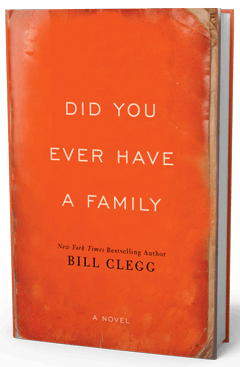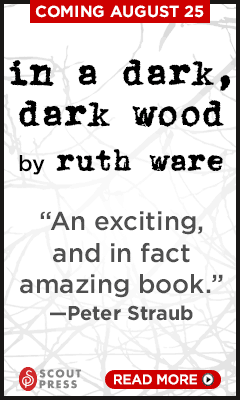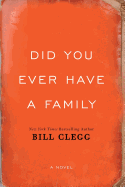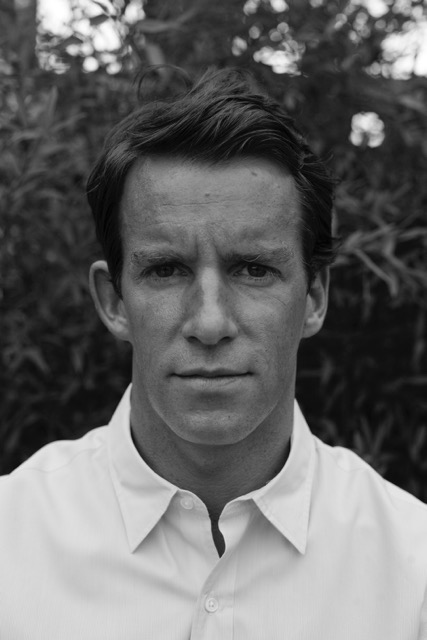Did You Ever Have a Family
by Bill Clegg
Acclaimed memoirist Bill Clegg (Portrait of an Addict as a Young Man; Ninety Days) offers a profound jolt with his first novel, Did You Ever Have a Family, the impetus for the creation of Gallery Books' new literary imprint, Scout Press.
June Reid's world is splintered and lost in an instant. In the early morning of her daughter's wedding day, her farmhouse explodes and burns, killing June's ex-husband; her current boyfriend, Luke; her daughter, Lolly; and Lolly's fiancé, Will. Did You Ever Have a Family maps the circumstances of the blaze and follows the aftermath of this tragedy as it affects June and other members of the families and communities of the victims.
In Clegg's unusual composition, each chapter belongs to a different person, with the reader left to configure their connections. Some of their stories are told in first person, some in third, and almost all in flashbacks. This ever-shifting perspective highlights mistakes and misunderstandings, including June's; other characters provide small revelations, thereby contributing to larger questions. The relatives and acquaintances of the deceased are joined by others with less clear ties, who appear to the reader in ever-widening concentric circles. Thus Clegg slowly and skillfully reveals the night of the fire and the nuances of the surrounding community in deft disclosures, through different points of view and with deep feelings.
June's farmhouse is located in the small Connecticut town of Wells, where the locals are employed, somewhat resentfully, in serving weekend people from New York City. June had first been a weekender, and later moved in full-time. She ruffled some feathers when she began dating Luke, a handsome young man some 20 years her junior with a complicated history, about whom everyone in town had an opinion. June's own family is not uncomplicated: following her divorce, she struggled to get along with her daughter, Lolly, a dreamy girl who apparently blamed her mother for the fracturing of the household. But June had worked to get to know Lolly's fiancé, Will. She was counting on a future. In a moment of unguarded exasperation, she rhetorically asked Will's sister: "Did you ever have a family?" After losing hers in such a spectacular, gruesome fashion, June eventually departs Wells carrying no identification, with only her car keys and a bank card left in the jacket she was wearing when she ran out of her house.
Early chapters focus on native Wells residents: friends, neighbors, the florist contracted for the wedding, the caterer who never got paid. But as characters gradually expand and diversify, the geography of Did You Ever Have a Family also spreads as the narrative unfolds, until its focus ranges from the east to the west coast of the United States. The lives of many are altered by the loss of June's family; their simply expressed, easily understood emotions belie the gut-wrenchingly awful stories they tell. And each is ultimately working to build or define family, with varying degrees of success.
Lydia is Wells's town outcast, busty and socially awkward, who gave birth years ago to a baby whose father had to have been African-American, although Lydia's husband was red-haired and pale. That baby would grow up to be an intelligent, athletic, convicted felon--June's boyfriend, Luke. When readers meet her, Lydia is chafing under the opinions of small, mean minds and loud voices. Town gossip holds Luke responsible for the tragedy, and thereby confirms Lydia's low social status. Following an estrangement of several years between mother and son, June had orchestrated a tentative reconciliation. But when June leaves town following the funerals of everyone she loved, Lydia loses not only her son but her only friend. After June deserts Wells, gossip gains strength, and may yet destroy what the fire didn't.
Supporting characters include a teenage neighbor who helped fix up the yard for the wedding and who carries his bong with him everywhere, and the family of June's never-to-be son-in-law, Will, who return home to Washington State to mourn him. At a small seaside motel on the West Coast, a couple who have fled their own tragedy in Seattle worry over their new guest, a ghostlike woman who rents by the month and never leaves her room. And with yet another perspective, the reader learns the identity of Luke's father, although Luke himself never did. These characters and vignettes are not disconnected, although their relationships become clear only over the course of Clegg's masterfully woven story.
June and Lydia inhabit the center of this wondrous, grave and glorious story, but each voice that speaks up in Did You Ever Have a Family is gripping and invokes the reader's sympathies. Every character and every small tragedy is a sensitively portrayed, complex, and compelling study on its own. What first appears to be a tale of grief in the face of unspeakable loss grows with its own momentum, until finally its scope is much wider than initially suspected. The expansive and surprising result eventually portrays the building of community and the possibility of recovery, even forgiveness. Did You Ever Have a Family is an elegant first novel, carefully composed and beautifully, hauntingly written. --Julia Jenkins








